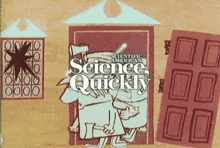 |
| September 05, 2023 |
Artificial intelligence is making its way into our daily lives in a variety of ways: it can chat with us, discover potential new medications and control self-driving cars. As it becomes ubiquitous, its risks—of making mistakes, spreading misinformation and reinforcing biases—will only continue to grow. So how should the government regulate this technology? Because AI has a variety of applications, there's no single agency best suited to rein it in. Instead, the onus of protecting humans from AI lies on each industry that uses the tech. Read more in an editorial written by the editors of Scientific American. |
| | Sophie Bushwick, Associate Editor, Technology
| |
 |
| Artificial Intelligence Safeguarding AI Is Up to Everyone The use of artificial intelligence is so varied and industry-specific, no one federal agency can manage it alone By The Editors | |
| |
| Artificial Intelligence What the Luddites Can Teach Us about AI The Luddites did not hate technology—but they did fight the way it was used to exploit humans. |  | By Sophie Bushwick,Elah Feder | 10:04 | | | |
| Consciousness If AI Becomes Conscious, Here's How We Can Tell A checklist derived from six neuroscience-based theories of consciousness could help assess whether an artificial intelligence system achieves this state | | By Mariana Lenharo,Nature magazine | | | |
| |
| |
| |
| |
| QUOTE OF THE DAY
 "While AI has previously bested humans in games like chess, Go, and even StarCraft, this may be the first time an AI system has outperformed human pilots in a physical sport." Benj Edwards, Ars Technica | |
FROM THE ARCHIVE
 | | | |
LATEST ISSUES
 |
| |
| Questions? Comments?  | |
| Download the Scientific American App |
| |
| |


















